Understanding pedagogy: Ekaterina Alexandrova on the profession of a teacher
The head of the Department of Educational Methodology of the Faculty of Psychological, Pedagogical and Special Education Ekaterina Alexandrova is a teacher in the third generation. Ekaterina Alexandrovna's scientific ideas and author's pedagogical practices are known not only in the Saratov region, but also outside the country. The professor is sure that every teacher is primarily a psychologist. However, the professional path of E.A. Alexandrova began with chemistry.

Pedagogical roots
E.A. Alexandrova has absorbed her love for science and education since childhood. Ekaterina Alexandrovna was inspired by teachers from her family – grandfather Joseph Petrovich and uncle Vladislav Iosifovich.
Joseph Petrovich Klyaev was born in 1905 in Russian Poland. Since 1916, he and his family lived in Tsaritsyn (now Volgograd). In 1937, he worked as the director of the Volgograd school. After moving to Saratov in 1939, Joseph Petrovich was the head of the Department of Party History at the Veterinary Institute for 10 years, then taught the history of the Communist Party at the Economic Institute. From 1959 to 1967, he was in charge of the Office of Party History at Saratov University.
"My grandfather wrote a dissertation on Joseph Stalin, and then Stalin died. As a child, I ran to the barn to look at this thesis tied with strings, which lay, lay and, of course, sank into Oblivion. My grandfather never defended his dissertation, but he taught the history of the party," says E.A. Alexandrova.
Joseph Petrovich explained to his granddaughter the history of the country through the history of the party. "The manner of his presentation of the material struck me to the depths of my soul as a child: how can a lecturer read in such a well-modulated voice, simply answer difficult children's questions?" Ekaterina Alexandrovna recalls.
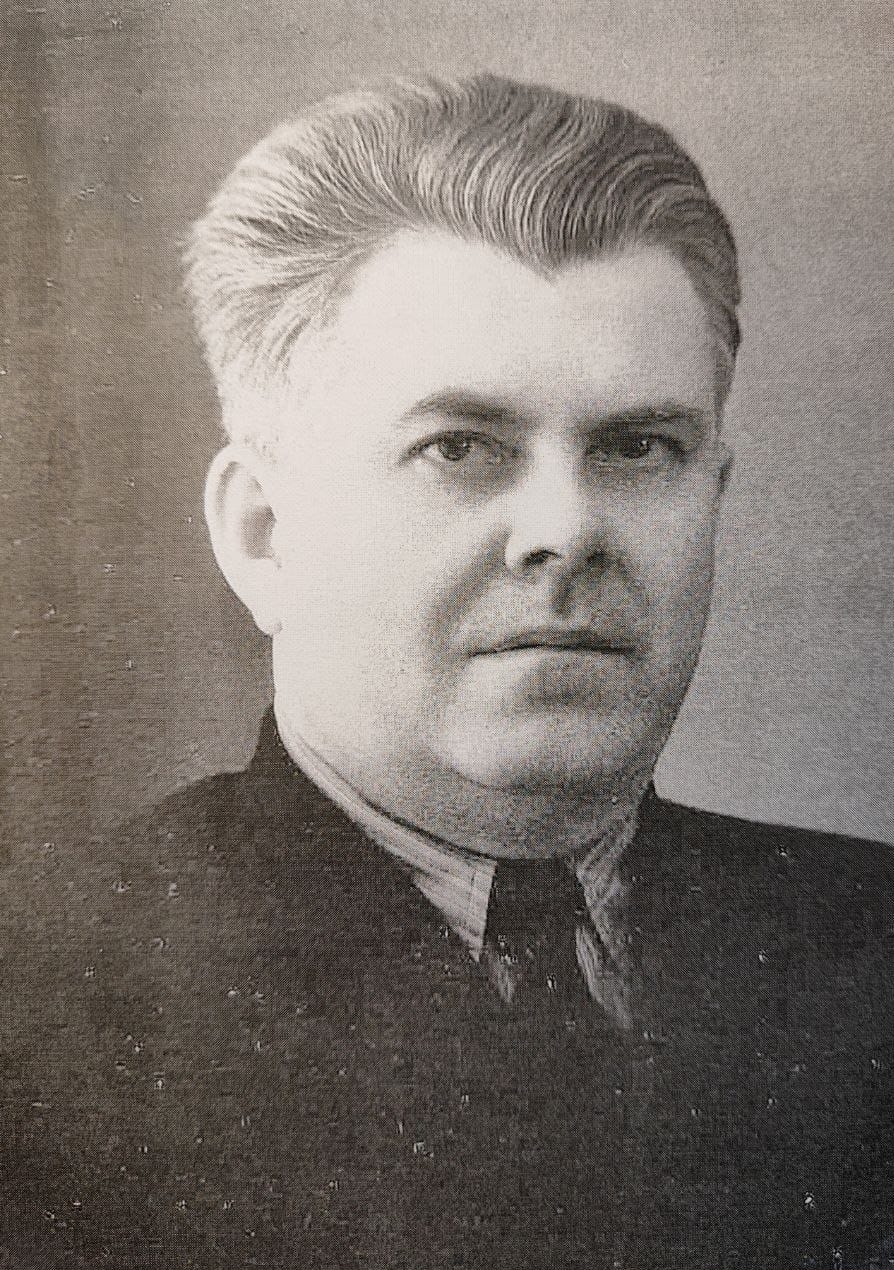
E.A. Alexandrova's uncle Vladislav Iosifovich Klyaev defended his PhD thesis in chemistry in 1965 and since 1974 worked as a vice-rector for distance learning at the Pedagogical Institute. In the same year, he became head of the Department of Inorganic Chemistry and dean of the Faculty of Natural Sciences, where Ekaterina Alexandrovna would enter a few years later. Vladislav Iosifovich worked as Dean for 25 years – until 1998. Almost all these years, the faculty has held a leading position at the institute.
After joining the Pedagogical Institute to the SSU, Vladislav Iosifovich worked as deputy director of the Institute of Chemistry until 2008. V.I. Klyaev has numerous awards: the badge "Excellent Student of National Education of the RSFSR", the badge of honor of the USSR Higher School "For excellent achievements in work", the medal "Veteran of Labor". His total teaching experience at the university is 34 years.
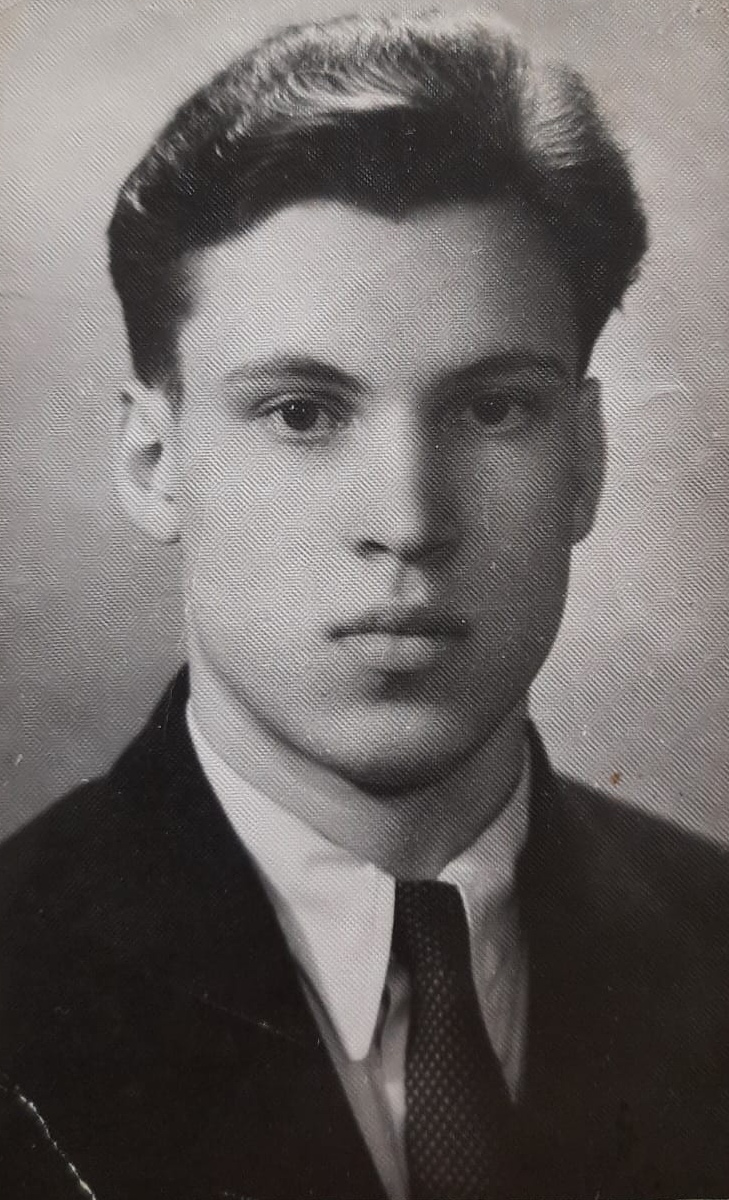
It was Vladislav Iosifovich who introduced Ekaterina Alexandrovna to science: "My uncle taught me chemistry from a young age, showing me a wide variety of magical experiments. It was impossible not to fall in love with the performance of these experiments. He taught me, as it seemed to me at the time, the game of lecturing to his family. As a child, I gathered the whole family, took a globe, set up a chair and lectured on the structure of the universe. My uncle taught me how to make handwritten magazines, and I still have one of the issues."

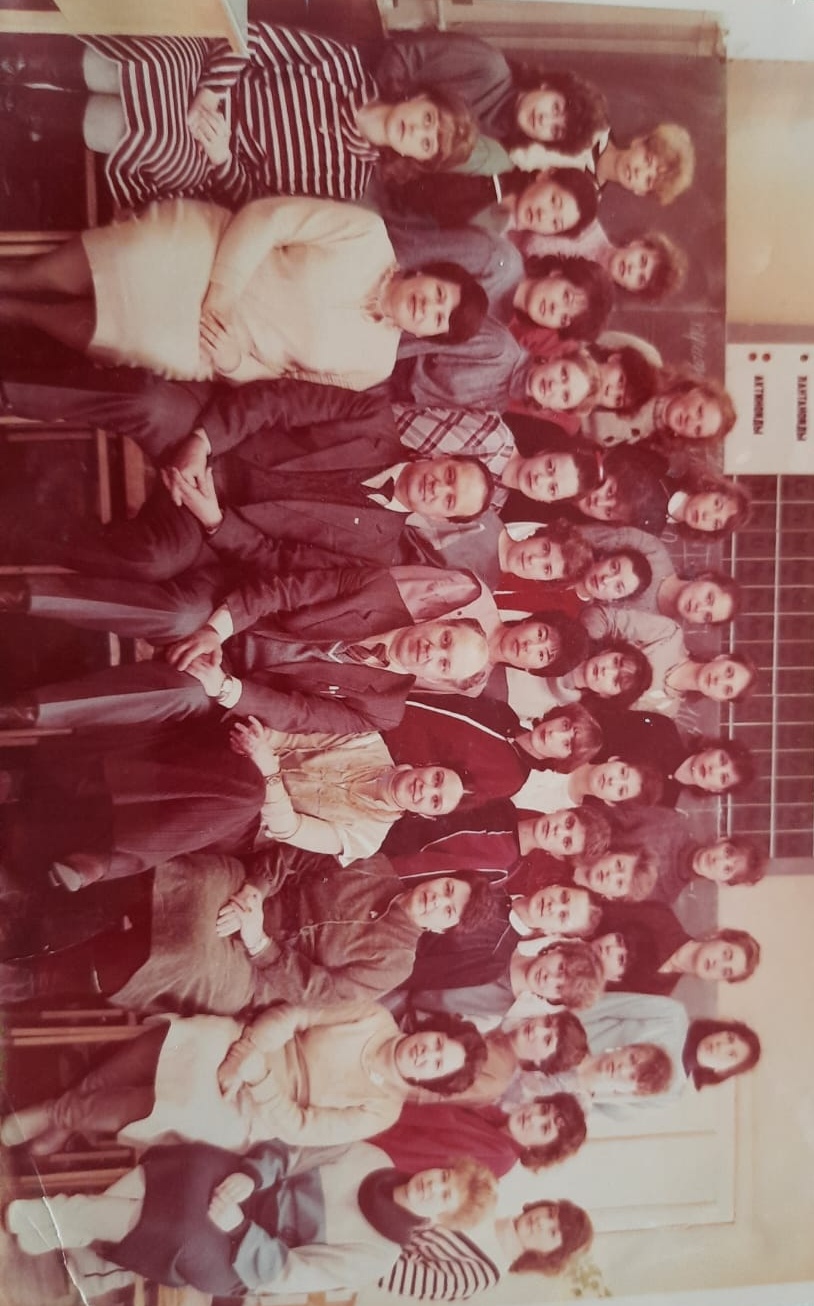
E.A. Alexandrova's father is also associated with pedagogy. While working at the factory, Alexander Fedorovich Kroshnev taught descriptive geometry at the Polytechnic Institute for some time. E.A. Alexandrova's husband also has teachers. Olga Vyacheslavovna's mother–in-law graduated from the Physics department of SSU in 1965 and from 1967 to 2009 taught physics at School No. 19 (now Gymnasium No. 1). Father–in-law Alexander Borisovich taught at Vavilov University and Gagarin State Technical University named after Yu.A. His total experience is more than 30 years.
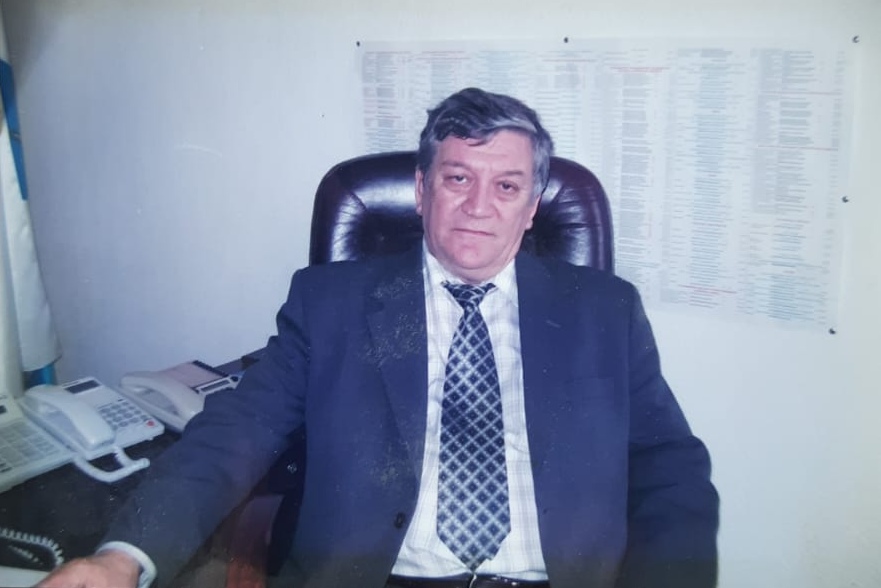
Never say never
Ekaterina Alexandrovna says about her career: "There have always been turns in my life where I didn't want to go, so never say no to the universe." At first, the future teacher did not want to be a teacher – only a laboratory assistant in the chemistry room. But after graduating from the Faculty of Natural Sciences of the Pedagogical Institute in 1987, Ekaterina Alexandrovna began teaching chemistry and biology at school No. 42.
The students tested the young teacher for courage: they threw caterpillars, smoked through the window, sang "Here someone came down from the hill" in the classroom. However, Ekaterina Alexandrovna managed to find an approach to children – she even sang with them. The experience of working at school gave Ekaterina Alexandrovna a clear understanding: education is primary, education is secondary.
In 1992, E.A. Alexandrova completed a professional development program at the Institute of Pedagogical Innovations of the Russian Academy of Education in Moscow. This program, organized by the famous teacher O.S. Gazman, prepared teachers for the new position of the released classroom teacher, or curator. E.A. Alexandrova became one of the first released classroom teachers (curators) in the Saratov region. Ekaterina Alexandrovna went kayaking with children from her class on multi-day hikes, developed scenarios with colleagues and held balls.
"Then I uttered the phrase that defined the next step: "I will always be only a class teacher, I do not want to be either a director or a head teacher!" After that, I became the deputy director for academic affairs at the Saratov Pedagogical College," says E.A. Alexandrova.
Academic freedom
In 1995, at the invitation of her supervisor G.K. Parinova, Ekaterina Alexandrovna worked as an assistant at the Department of Pedagogy at the Pedagogical Institute. Two years later, E.A. Alexandrova defended her PhD thesis "Pedagogical support for high school student self-determination in culture", and in 1999 became an associate professor.
"The university provides an extraordinary opportunity for its own growth. At the university, I am attracted by academic freedom, the opportunity to engage in scientific work and help future teachers understand the intrinsic value of Childhood. My family also influenced my decision to go to university. You can't get the roots anywhere, you can't get the chair from childhood anywhere, the globe had to be applied somewhere," says Ekaterina Alexandrovna.
On the initiative of Ekaterina Alexandrovna, in 2004, a laboratory of productive education was established at the Department of Pedagogy, whose participants organized the annual International Conference "From a school project to a professional career" and the International Forum "Humanization of the Educational space", which is still being held.
In 2006, E.A. Alexandrova became a doctor of pedagogical Sciences, having defended her dissertation "Pedagogical support of high school students in the process of developing and implementing individual educational trajectories" at Tyumen University. Since 2014, Ekaterina Alexandrovna has been the head of the Department of Educational Methodology at the Faculty of Education.
Scientific school
E.A. Alexandrova's research interests originate from the experience of communicating with colleagues and Teachers "with a capital letter": "In my life, I met amazing people who helped me understand myself and supported my endeavors. This is the head of the Department of Educational Methodology, Professor Galina Konstantinovna Parinova. For a long time she was the head of the Department of Pedagogy at the Pedagogical Institute. This is the famous Oleg Semyonovich Gazman, who introduced the term “pedagogical support" into science. This is Nata Borisovna Krylova. I was her graduate student, and thanks to her, the concept of “self-determination" appeared in my life. This is Irina Evgenievna Vidt, who was a scientific consultant for my doctoral dissertation."
E.A. Alexandrova became interested in pedagogical support, educational environment and anthropological approach in the process of studying at the graduate school of the Institute of Pedagogical Innovations under O.S. Gazman and corresponding member of the Russian Academy of Education V.I. Slobodchikov. The methodology of education in the life of Ekaterina Alexandrovna appeared thanks to academician V.I. Zagvyazinsky. E.A. Alexandrova still keeps a draft of the abstract of her doctoral dissertation with his comments.

Ekaterina Alexandrovna's scientific search in the direction of humanization and individualization of education goes back to her childhood. "Before high school, I rarely attended school due to my illness. However, I managed to build my own individual educational route. In the words of Mark Twain, “I have never allowed school to interfere with my education.” Already in adulthood, as a researcher, I became interested: how can we help each child to build their own individual route so that it takes place in this life?" – says E. A. Alexandrova.
Based on the exchange of experience with Russian and foreign colleagues, the scientific school of E.A. Alexandrova began to form more than 10 years ago. Now the ideas of "Pedagogical support for the development of personality in the educational process" are being developed in the scientific works of Ekaterina Alexandrovna's students. Under her leadership, 24 PhD theses and one doctoral thesis were defended.
"The work of all my graduate students is devoted to how to make a Child want to go his own way, so that the teacher does not interfere in the process of his education, so that he teaches him how to go, and then, watching, made it clear that he is there, ready to support and help at any moment," says Ekaterina Alexandrovna.
E.A. Alexandrova has published more than 250 scientific papers on the individualization of education, upbringing, the work of a class teacher and tutor. The professor's scientific works are published in such prestigious publishing houses as "National Education", "The First of September", "September". Ekaterina Alexandrovna – Deputy Editor-in-Chief of the journals Azimuth of Scientific Research: Pedagogy and Psychology, Izvestiya SSU. A new series. The acmeology of education. Developmental Psychology", member of the editorial boards of the journals "Humanities and Education" and many others.
"We all come from childhood," recalls the words of Antoine de Saint-Exupery Ekaterina Alexandrovna. "Everything that my grandfather and uncle put into me manifested itself in my adult life: I stand at the department, I lecture, I love my globe, which still goes to training with me, and I publish magazines."
Today Ekaterina Alexandrovna participates in conferences and seminars, directs the scientific work of students and postgraduates, creates trainings for children, parents and teachers, helps high school students – students of the Pedagogical class of SSU to see interesting things in pedagogy. The festival "Week of Pedagogical Education" and the International Forum "Humanization of the educational space" are not complete without her participation. At the same time, the professor manages to travel and engage in creativity.
"I have my own resource points," Ekaterina Alexandrovna shares the secret. – Firstly, this is my huge dog Athos, a German long-haired shepherd dog, which is present in my Telegram and VKontakte channels, in my opinion, more often than the rest of the family. And, no matter how banal, it's cross-stitch."
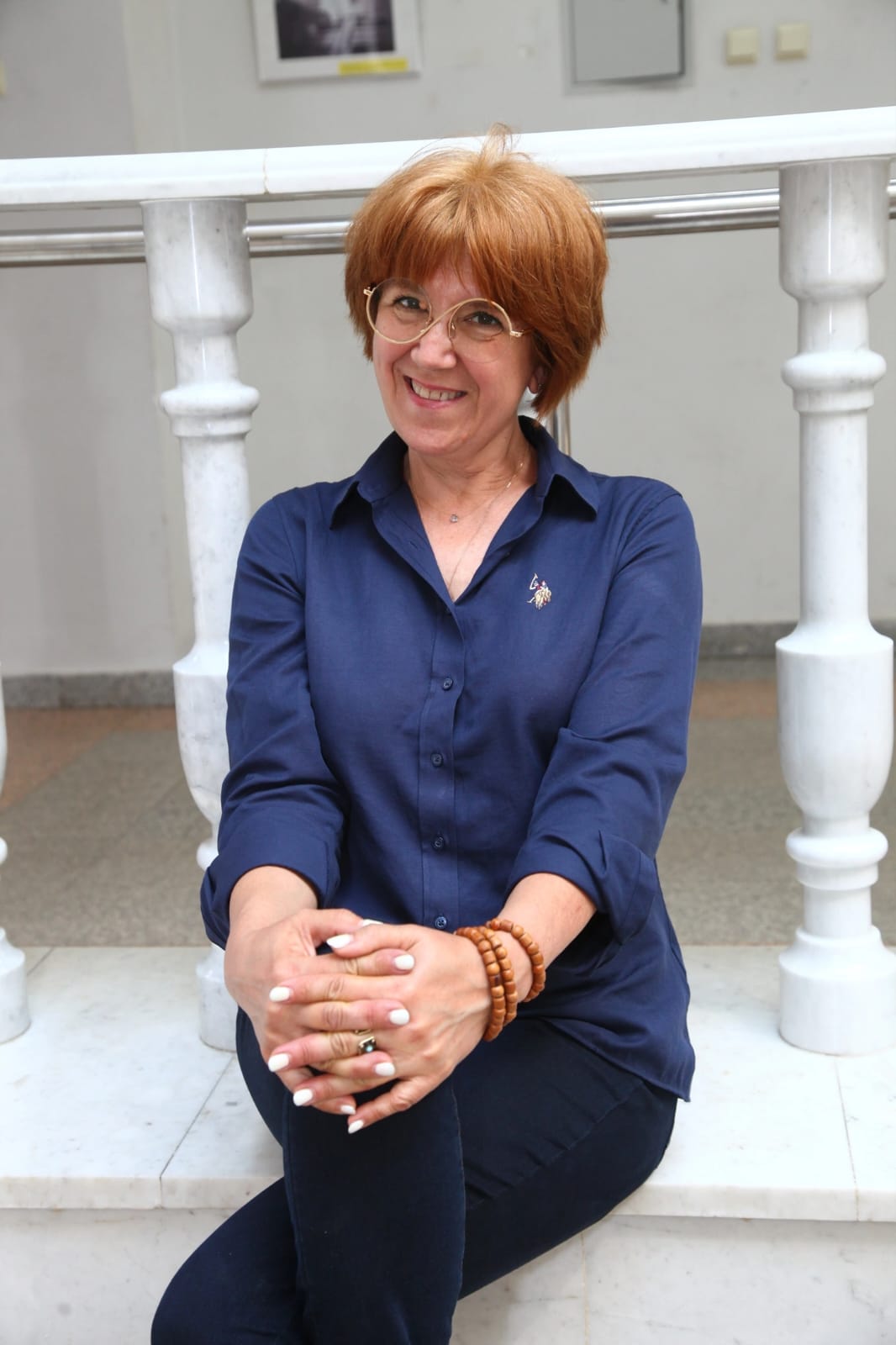
"I really want to make the life of children at school better," Ekaterina Alexandrovna admits. – I talk about my ideas, about small tricks, about what can really be organized at school, and if the life of at least one cub becomes brighter from this, then I'm not doing it in vain. A teacher who takes an understanding position helps a child to live a better, brighter and calmer childhood period."
Polina Gromova
Translated by Lyudmila Yefremova







